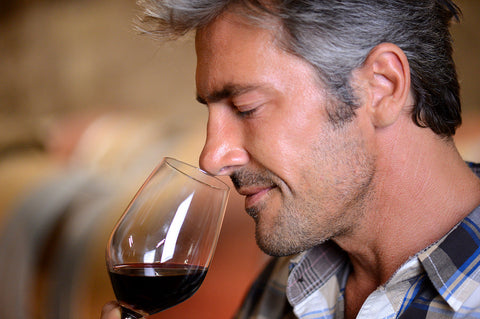How to Survive a Wine Tasting When You'd Rather Be at the Pub
Let's face it—sometimes you end up at wine tastings not because you're passionate about terroir and vintage variations, but because your partner dragged you along, your boss suggested "team building," or you made the mistake of saying yes to that colleague who's really into "wine experiences." Now you're standing in a room full of people swirling glasses and making thoughtful humming noises, while all you can think about is how a cold schooner would hit the spot right about now.
The good news? Wine tastings don't have to be torture. With the right survival strategies, you can not only get through the experience without embarrassing yourself, but you might even enjoy bits of it. And if nothing else, you'll have some great stories for your mates down at the local.
Understanding the Wine Tasting Ecosystem
Wine tastings attract a diverse crowd, and knowing who you're dealing with helps you navigate the social dynamics. You've got your genuine enthusiasts (harmless, usually friendly), your wine wankers (avoid at all costs), your fellow conscripts (potential allies), and your hosts (treat with respect—they control the good stuff).
The key is identifying your tribe early. Look for people who seem slightly overwhelmed, check their phones occasionally, or make normal human facial expressions when tasting wine. These are your people. The ones taking extensive notes and using words like "phenolic" unironically? Give them a wide berth.
The Art of Strategic Spitting
Here's something they don't tell you about wine tastings: you're supposed to spit out most of the wine. This comes as a shock to people who think the whole point is getting slightly tipsy on someone else's quality booze, but there's actually good reasons for it.
Why Spitting Makes Sense:
- You can taste more wines without getting hammered
- Your palate stays fresh for later tastings
- You won't accidentally tell the winemaker their Pinot Noir tastes like cough medicine
Spitting Technique: The key is confidence. Approach the spit bucket like you've done this a thousand times. Don't dribble, don't splash, and definitely don't miss the bucket entirely. Aim for the centre, spit decisively, and move on like it's the most natural thing in the world.
When NOT to Spit:
- If it's genuinely delicious wine worth savouring
- When the winemaker is watching you expectantly
- If there's only one spit bucket and a queue of people waiting
- When you've had a particularly rough week and need the alcohol
Mastering Wine Tasting Small Talk
Wine tastings involve a lot of standing around making conversation with strangers while holding small glasses. This can be tricky if you don't know a Shiraz from a Sangiovese, but there are safe conversational territories:
Safe Topics:
- The venue ("Beautiful location for a tasting")
- The weather ("Perfect day for wine tasting")
- The food ("These cheese selections are spot on")
- General appreciation ("I'm really enjoying this experience")
Topics to Avoid:
- Detailed wine opinions unless you actually have them
- Comparisons to other wineries unless you've been to them
- Technical winemaking questions
- How much you'd rather be at the pub
Conversation Starters That Always Work:
- "What's been your favourite so far?"
- "Have you been to many tastings here?"
- "I'm still learning about wine—what would you recommend?"
- "This is my first time here, any tips?"
Reading the Tasting Sheet Like a Pro
Most wine tastings provide tasting notes or information sheets. These are your secret weapon for sounding informed without actually being informed. Here's how to use them strategically:
Before Tasting: Quickly scan the sheet for key descriptors. If it mentions "blackberry and spice," you know what to look for (or at least what to claim you're finding).
During Tasting: Reference the sheet subtly. "I'm definitely getting those cherry notes mentioned here" is much safer than improvising flavour descriptions.
After Tasting: Use the sheet to ask intelligent questions. "The notes mention sustainable farming—can you tell me more about that?" makes you sound engaged.
The Nod and Smile Strategy
When someone starts explaining malolactic fermentation or the mineral content of the soil, your best bet is the classic nod and smile. This universal technique works in most situations:
- Slow nod: Shows you're thoughtfully processing complex information
- Quick nod: Indicates agreement and understanding
- Smile and nod combo: The nuclear option for when you have no idea what's happening
Throw in the occasional "That's fascinating" or "I hadn't thought of it that way" to show engagement without committing to specific knowledge.
Handling the Sommelier
The sommelier or wine expert leading the tasting is usually passionate about their subject and wants to share knowledge. They're generally not trying to intimidate you, but they might accidentally do so with their expertise. Here's how to handle them:
Do:
- Ask genuine questions about things you're curious about
- Thank them for their explanations
- Show interest in their recommendations
- Be honest about your experience level
Don't:
- Pretend to know more than you do—they'll see right through it
- Argue with their assessments
- Monopolise their time with basic questions others can answer
- Make jokes about wine being "just grape juice"
Emergency Exit Strategies
Sometimes wine tastings go wrong. Maybe you've accidentally had too much to drink, or you're stuck talking to someone who wants to discuss the 1982 Bordeaux vintage at length, or you've realised you genuinely hate wine and want to escape. Here are your options:
The Bathroom Break: Classic and fool proof. "Excuse me, just need to find the facilities" works in any situation and buys you time to regroup.
The Phone Call: "Sorry, I need to take this" while gesturing at your phone. Step outside, call your voicemail if necessary, then decide whether to return or make your exit.
The Food Focus: "I'm going to grab some of that cheese" lets you move away from conversations and reposition yourself near more congenial company.
The Early Departure: "This has been wonderful, but I have another commitment" is perfectly acceptable after you've been there for a reasonable time.
Making the Most of the Food
Wine tastings usually include food, and it's often quite good. The cheese, crackers, olives, and other accompaniments can actually enhance your tasting experience and provide safe conversation topics.
Strategic Eating:
- Use food to cleanse your palate between wines
- Try wine and food combinations—they often work better together
- Focus on food if the wine conversation gets too intense
- Stock up on the good stuff if you're genuinely hungry
Food as Social Lubricant: "This cheese is incredible with the Cabernet" is a safe observation that shows you're engaged without requiring deep wine knowledge.
Buying Wine at Tastings
You'll probably be offered the chance to purchase wine at the tasting. This can be tricky territory if you don't know what you're doing, but there are safe strategies:
Safe Purchases:
- Buy what you genuinely enjoyed during the tasting
- Ask for recommendations based on your preferences ("I liked the lighter red—what would you suggest?")
- Go for mid-range options unless you have specific reasons to splurge
- Consider mixed packs if you're unsure
Avoid:
- Buying expensive wines just to impress people
- Purchasing based on someone else's enthusiasm if you didn't like it
- Getting pressured into buying more than you want
- Feeling obligated to buy anything at all
The Drive Home Strategy
If you've been actually tasting (rather than spitting everything), you need a plan for getting home safely. Wine tastings can sneak up on you—those small sips add up, and you might be more affected than you realise.
Safe Options:
- Designated driver who's been spitting religiously
- Uber or taxi
- Public transport if available
- Staying local and walking
Red Flags:
- Feeling more confident about your wine knowledge than when you arrived
- Sudden urge to visit more wineries
- Everything seeming funnier than usual
- Difficulty finding your car keys
Converting the Experience
Once you've survived the wine tasting, you might find yourself with some actual wine knowledge and possibly even enjoyment. Here's how to process the experience:
If You Enjoyed It:
- Consider taking a proper wine course
- Visit more relaxed, casual tastings
- Explore wines similar to what you enjoyed
- Share the experience with friends who might also enjoy it
If You Hated It:
- That's perfectly fine—wine isn't for everyone
- You still have great stories about wine wankers
- You've learned something about yourself
- You can now confidently decline future wine invitations
Alternative Survival Tactics
The Learning Approach: Embrace your beginner status and ask lots of questions. People love sharing knowledge, and you'll actually learn something.
The Social Approach: Focus on meeting people rather than understanding wine. Wine tastings attract interesting folks from all walks of life.
The Cultural Approach: Treat it as a cultural experience like visiting a museum. You don't have to love everything to appreciate the craftsmanship.
The Food Approach: Many wineries have excellent restaurants or food offerings. Focus on the culinary experience.
What You've Actually Learned
By the end of the tasting, you'll probably know more about wine than when you started, even if you weren't trying to learn. You might have discovered:
- You actually like certain types of wine
- Wine people aren't all pretentious (most are quite nice)
- There's more complexity to wine than you realised
- You have opinions about things you didn't know you had opinions about
The Debrief
After surviving your first wine tasting, you'll have earned the right to tell people you've "been to a wine tasting." This gives you social credibility in certain circles and something to talk about at dinner parties.
You might even find yourself looking forward to the next one. Wine tastings, when approached with the right attitude, can be genuinely enjoyable social experiences. And if nothing else, you've expanded your comfort zone and have some good stories to tell.
Final Thoughts
The secret to surviving wine tastings when you'd rather be at the pub is remembering that everyone was a beginner once. Even the most knowledgeable wine enthusiasts started somewhere, and most of them are happy to share their knowledge with people who show genuine interest.
Don't stress about not knowing the difference between a Malbec and a Merlot. Focus on what you enjoy, be honest about your experience level, and treat it as a social adventure rather than an exam you need to pass.
And remember—if all else fails, there's usually a pub nearby where you can debrief over a proper beer. Sometimes the best part of a wine tasting is the stories you tell afterwards over a schooner with your mates.
Wine tastings: they're not as scary as they seem, they're more fun than you expect, and they give you excellent material for future conversations. Plus, you might discover you actually like wine. Stranger things have happened.




Comments (0)
There are no comments for this article. Be the first one to leave a message!